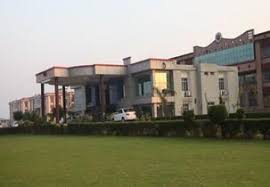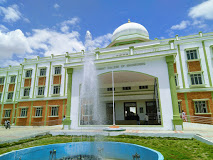
Biologist Chandrima Shaha become the first woman president of the Indian National Science Academy (INSA) beginning January 2020. Her top priority, she told The Hindu, would be to promote science more “aggressively” among people.
Daily Current Affairs Quiz 2019
“The academies [India has three major science academies] have been doing it. However I’d like to conduct more outreach in local languages and have scientists speak about their work, the process of science etc to wider audiences,” she said in a phone conversation,”This is critical to address myth and misinformation. We have to educate people from the bottom-up.”
Earlier this year, the INSA condemned statements by Nageswara Rao, former Vice-Chancellor, Andhra University who, at the Indian Science Congress in Jalandhar this January, claimed that the Kauravas were the products of stem-cell technology.
Ms. Shaha was formerly the Director of the National Institute of Immunology, Delhi and graduated with a Master’s degree from the University of Calcutta and completed her doctoral research in 1980 from the Indian Institute of Chemical Biology.
Women comprise less than 10% of the fellowships of India’s science academies but Chandrima Shaha is against quotas for women. “The critical mass of good women candidates is still low. While there are several more young women scientists today who are good and deserving, we cannot dilute [academic and research] standards just to accommodate more women. India has several opportunities for women scientists perhaps more than several countries. However, we need to do better at assessing these programmes and evaluating their effectiveness and execution.”
Ms. Shaha, who’s never married, said fewer family commitments allowed her to focus more time on science than several women colleagues and contemporaries, “It’s challenging to multi-task as a scientist, which is a demanding job, and maintain a family. In that sense, I was in a way privileged, that I could relatively more time than many peers,” said Ms. Shaha, who’s also a photographer and — prior to being a biologist — was vice-captain of West Bengal’s woman’s cricket team as well as a commentator on All India Radio. “Now I just follow sport on television but cricket taught me the value of team work,” she says.
For her post doctoral work, she went to the University of Kansas Medical Centre (1980-1982). As a biologist, Ms. Shaha has focussed on apoptosis, or programmed cell death. Her laboratory uses the uni-cellular leishmania parasite as a model to understand the conditions under which cells respond to their environment and kill themselves, if need be. Runaway cell growth is characteristic to cancer, some autoimmune diseases and neurogenerative disorders and understanding cell death, the genes involved, the mechanism in action opens clues to new therapy and treatment.





